5 Best Foods For Fertility
Thinking of getting pregnant in the near future? If so, it’s time to step up your healthy eating game and increase your chance of conceiving!
Many women don’t start getting serious about eating healthfully until after they’ve become pregnant, but there’s increasing evidence showing that diet matters long before conception.
In addition to maintaining a healthy body weight and getting regular physical activity, there are plenty of fertility-friendly foods that you’ll want to add to your daily routine.
Luckily, you don’t need to eat crazy weird foods, drink nasty elixirs, or spend a fortune on supplements to up your chances of getting pregnant. Incorporating more of the nutritious foods you already know and love can give you a little extra boost 🙂
During the time I was looking to get pregnant with my second baby, I sifted through the latest research and simplified what I found into an easy to follow list of foods to get more of, and foods to cut back on.
Fertility-Friendly Foods To Increase:
1. Plant Protein
- Replacing a serving of meat with plant-based protein each day may help improve fertility. Swap out some beef or pork with beans, lentils, peas, nuts or soy. Add black beans, lentils and kidney beans because they are an excellent source of protein and fiber. Nuts also pack a nutritious punch of fat, fiber and protein!
- I’m sure you’re thinking, wait Marissa – SOY?? Yep, you heard me right – often misrepresented, soy has not been consistently related to poor fertility. In fact, soy and soy supplements appear to show a beneficial effect among women undergoing infertility treatment.
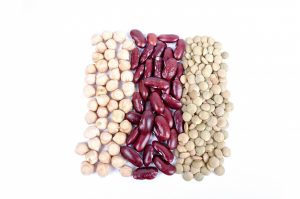
RD Tips:
- Soak beans overnight to make the nutrients more bioavailable.
- Eat plant proteins with a source of vitamin C for better iron absorption (think citrus fruits, peppers or broccoli).
2. High-fat dairy:
- Despite general dietary guidelines, some (but still limited) research suggests that one to two servings a day of whole milk dairy can support conception.
- Try replacing one low-fat dairy serving per day with one high-fat serving, such as a glass of whole milk or whole milk yogurt.
- One cup of creamy yogurt topped with fresh berries sounds like a perfect afternoon snack!
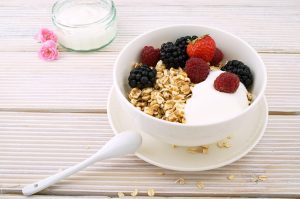 3. Choline-Rich Foods:
3. Choline-Rich Foods:
- You may never have heard of it, but choline is a nutrient that supports the brain and nervous system. Choline is especially important for a developing baby so it is best to start loading up before pregnancy! Many women fall short of the recommend choline amount, and prenatal vitamins often don’t contain choline. Egg yolks, chicken, fish and dairy products are all excellent sources of choline.
- Other sources of choline include cauliflower, whole grains, nuts and seeds.
 4. Healthy Fats
4. Healthy Fats
- Fat and cholesterol are building blocks for hormones; important physiology for making and growing a baby. Hopefully by now you have realized the low-fat days are gone! That said, it’s the type of fat that matters, and the focus should be to replace trans and saturated fats with mono and poly-unsaturated fat from the list below!
- Fatty fish (salmon, shrimp, scallops and tuna are all good sources of omega 3 fats, an important nutrient for your future baby’s brain and eye development.)
- Walnuts
- Avocado
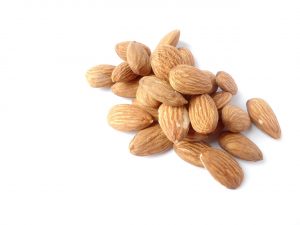 5. Fruits & Veggies
5. Fruits & Veggies
- This one is a no brainer, the antioxidant, vitamin and mineral content from fruits and vegetables are unmatched! Fresh, frozen or canned count too. So load your plates with a variety of fruit and vegetables.
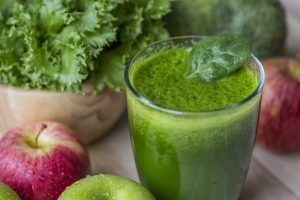
In addition to adding the foods mentioned above, research suggests that women who regularly took a multi-vitamin containing folic acid and iron had less ovulation-related infertility. Talk to your doctor to find a multi-vitamin that will work for you!
Okay, now that we’ve covered the list of foods linked to better fertility for both men and woman, it’s equally important to consider the foods to limit.
Not So Friendly Fertility Foods to Limit:
- Limit Herbal Teas and Supplements: Certain teas or supplements should not be taken during pregnancy, and are also best avoided when trying to conceive. Talk to your doctor if you have questions about a specific product.
- Eat Fish With Caution: It is best to avoid sushi or raw fish during pregnancy. You should also avoid high mercury fish such as swordfish, tilefish, mackerel and shark. Limit tuna to 1x/month.
- Decrease Caffeine: High caffeine intake may interfere with conception. Some evidence suggests very high caffeine intake can increase risk of miscarriage. As a result, stick to no more than two five-ounce cups of regular coffee a day (~200mg/day).
It Takes Two To Tango:
Your baby daddy has an equally important role in conceiving. His health matters too, as sperm motility can be impacted by diet. Furthermore, a plethora of research reports that higher consumption of fruits, green vegetables, fish, chicken, whole grains, and low-fat dairy products, alongside decreased intake of meat, processed foods, sweets, and high-fat products have potential to positively affect sperm quality. You are in this together!

Example Menu
- Breakfast: Eggs + Oatmeal
- Snack: Whole milk yogurt + blueberries
- Lunch: Black bean burger on whole wheat bun + side salad
- Snack: Trail mix with walnuts, pumpkin seeds and raisins
- Dinner: Salmon with roasted vegetables and brown rice
- Dessert: Fruit Parfait
Do you have any other foods to add to the list? Comment below!
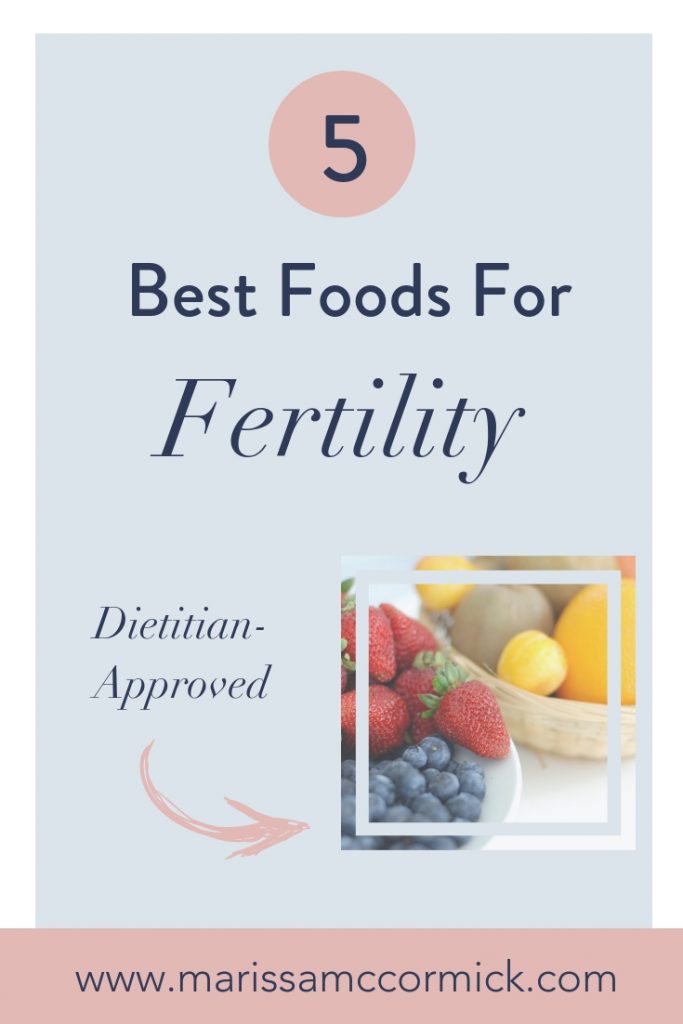
References:
- “Diet and Lifestyle in the Prevention of Ovulatory Disorder Infertility.” Jorge E. Chavarro, Janet W. Rich-Edwards, Bernard A. Rosner, and Walter C. Willett. Obstetrics & Gynecology. Vol. 110, No. 5, November 2007.
- Eatright.org Fertility Friends Foods
- Nutr Rev. 2016 Feb; 74(2): 118–130. Published online 2015 Dec 23. doi: 10.1093/nutrit/nuv059
- https://www.ncbi.nlm.nih.gov/pubmed/28844822
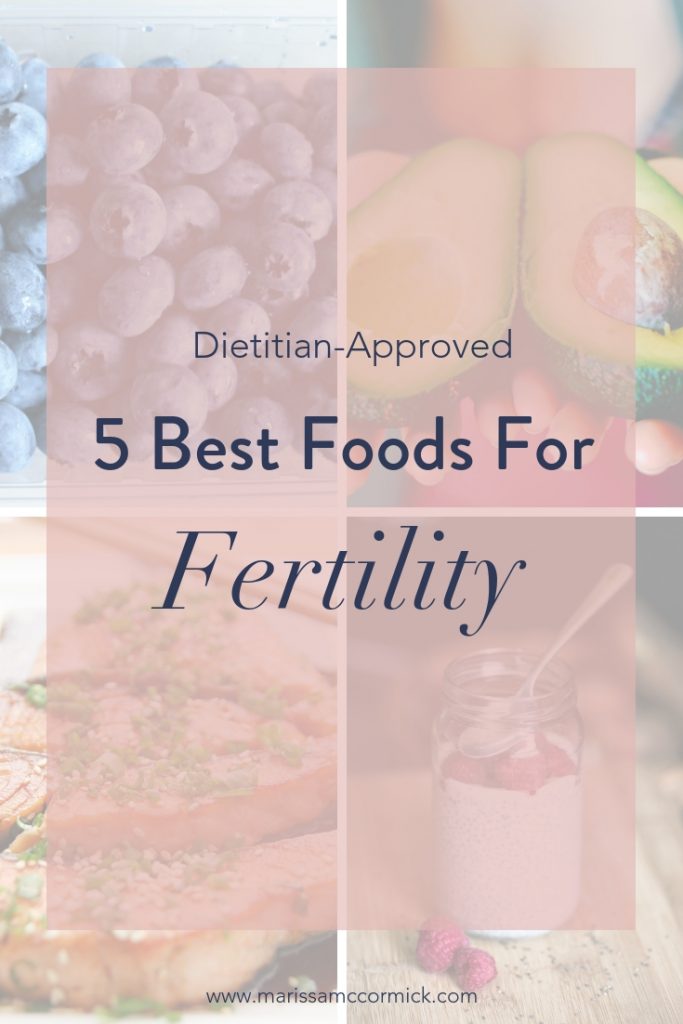
Be the first to comment